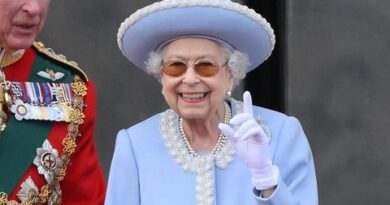An Expert Explains: The Angela Merkel era and India
After a slow campaign start, the centre-left Social Democrats (SPD) and their candidate for Chancellor Olaf Scholz, who were a part of outgoing Chancellor Angela Merkel’s governing coalition, have managed to rework the initial perception of German voters, and climb to the highest of the chart. The conservative Christian Democratic Union (CDU) and its leader Armin Laschet have slumped to an rock bottom , and should be forced to require a seat within the opposition.
The Greens, with their candidate for Chancellor Annalena Baerbock, have emerged because the third largest party, clearly showing the response among voters to the climate crisis. the normal kingmaker of the past, the Liberal Party (FDP), is in fourth position, and remains crucial to forming the govt . The populist right Alternative for Deutschland (AfD) has moved down the ladder but will still be present in Parliament, which shows that they’re entrenched in Germany’s political landscape.
Once the ultimate results are declared, the long process of forming the govt are going to be tried by both the SPD and CDU.
Merkel is that the third leader from the CDU to possess had a very long tenure as Chancellor. the opposite two leaders were Dr Adenauer (1949-63), who laid the inspiration of West Germany , and Dr Helmut Kohl (1982-98), who was called the Chancellor of Unification.
Merkel broke the ceiling to become the primary woman Chancellor from the Conservative Party , and was kept within the post by a mixture of political, economic, and social factors. Her middle-of-the-road approach made her appear a secure bet when things weren’t stable politically, and won her support at the domestic and European levels.
While many in Europe saw her because the only strong leader on the continent, to others she appeared as being risk-averse during a typically German way — which brought the reassurance that she would lead without rocking the boat. With the CDU being the most important party within the last four elections, and Merkel facing no significant challenge to her leadership from within, she could drive the negotiations for coalition governments, but she didn’t always to urge the optimal outcome. Thrice she formed a government with the Social Democrats, termed the “Grand Coalition”.
Dr Ummu Salma Bava is Professor at the Centre for European Studies, School of International Studies, and Monnet Chair within the EU Security, Peace and Conflict Resolution (EU-SPCR) at Nehru University. Her areas of research interest include EU and German foreign and security policy, and Indian politics and policy .
A number of political, economic, and social developments in Europe and therefore the world had their impact on Germany. Merkel benefitted from economic reforms initiated by her predecessor Gerhard Schröder — including a discount in taxes, merging of unemployment and welfare benefits, and increasing the pliability of the labour market. As a robust export-based economy, Germany under Merkel outperformed France, the UK, Spain, and Italy in Europe, and posted robust exports behind only China and therefore the US.
During her tenure, unemployment in Germany decreased by an order of three million, and 5 million more people got jobs. The innovative “kurzarbeit” short-time work scheme saved thousands of jobs, and prevented layoffs by giving firms subsidies to stay workers on the rolls during the financial crisis and therefore the pandemic.
However, Germany has been slow to adapt to digitalisation — and OECD data show it ranks 34th out of 38 industrialised countries in Internet speeds.
As Germany has seen demographic change, Merkel remains popular among the baby boomers, the generation born from the time war II ended to the mid-1960s. Thirty years after reunification in 1990, the memories of war II are receding — but the East-West divide continues despite the pumping of cash into the erstwhile East by successive German governments. Unemployment figures are still higher within the new states as compared to the remainder of Germany. And a big percentage of the population (about 10%) thinks that the country should leave the ecu Union.
All these developments have had an impression on the political landscape. the normal two-and-a-half-party system of the Christian Democratic Union/Christian Socialist Union (CDU/CSU), SPD, and FDP has changed. The Greens have risen as a serious force, and more recently, the AfD has sought to supply radical solutions, creating a fractured political field. Some analysts link the strengthening of the AfD — which became the third largest party within the German Parliament in 2017 — to the influx of huge numbers of refugees in 2015 following Merkel’s decision to open the country’s doors to them. The AfD’s rise is additionally in line with the trend seen elsewhere in Europe, and therefore the emergence of right governments in Poland and Hungary.


